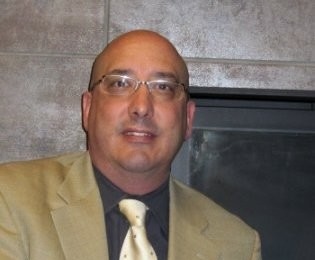The date is already circled on the calendar. June 30th, the school bell rings for the last time for Pueblo native and school superintendent Charlotte Macaluso. She’s been part of Pueblo’s schools, now, for decades. First as a student, then teacher, principal, administrator and since 2017, superintendent of southern Colorado’s largest school district.

Macaluso’s journey, from ‘Dogpatch’, the name colloquially attached to her old barrio neighborhood—now more formally known as Eastwood Heights—to the top rung in the school district, has been an adventure culminating with a job she never imagined. And while it’s one she wouldn’t trade; she also knows it’s time to hand the reins off to some- one else.
“I feel like I have devoted 31 years to the school district and the community,” Macaluso said. “I have tried to give back to the community that has given me so much.”
A product of the schools she now oversees, Macaluso looks back with as much pride as gratitude. “This educational system has shaped the person I am,” she said as she prepares to leave a job she loves.
The district, she said, is today in much better shape than when she took the job.
In 2017, when she was named superintendent, a number of the city’s schools were, to be kind, struggling. Five of its schools were determined by the state to be underperforming. “We had schools that were on the account clock,” a gentler, euphemistic way of saying they were failing the students. But Macaluso took charge and with a team she heaps generous amounts of praise on, things slowly turned around. Since that time, she said, “I think we have advanced the needle.” Today every school in the district is performing at or above state standards. “We do not have any schools in the lowest category.” The Governor, in fact, recently honored several schools for their achievement.
Turning underperforming schools around was a major challenge. But no more of a challenge than a pandemic–COVD–a virus that might generously be compared to a ‘500-year flood.’ It touched the lives of almost everyone, some more than others. “I lost twelve family members,” Macaluso said.
When it became evident that the virus was far more than ‘a bug,’ Macaluso and her team got together and crafted a plan. “It was an incredible team effort. We navigated our way through,” she said. “It was the greatest challenge.”
“We reimagined and improved our system in order to advance equity,” Macaluso said. The plan was totally student focused, making sure to keep learning at optimal levels over the course of the once in a lifetime pandemic. “Let’s get back to normal,” Macaluso told her team.
Ultimately, the objective was met, perhaps not perfectly—no school districts was. But Macaluso’s and the district’s plan, despite a bump here, a course correction there, came together and a transition to normalcy was achieved.
Today, with just months left in her run as superintendent, Macaluso remains focused on completing the job. But there’s also a good deal of time for looking back at the journey she’s made to arrive at this moment.
Macaluso grew up modestly in a community where many of the streets in her neighborhood were still unpaved. Her father, like many in a city forged in steel, punched the clock for decades at the steel mill. Her mother, she said, was a homemaker. But while each never finished high school, they encouraged and nurtured Macaluso and her siblings to make their life a journey of learning and giving back.
She also benefitted from teachers who saw in a precocious young Latina, something special and took the time to make her feel that way. “I have many educators that have shaped my life,” she said.
Bernie Alvarez, one of her elementary school teachers, is one. She calls him a mentor and now, friend. So, too, was the late Beatrice Kirton, a British expat, who was her first-grade teacher. And there was Charles Rodriguez, her principal at Pueblo East. “He was a leader,” she said with a reverence, “someone who looked like me.” She said Rodriguez “supported me and challenged me.” Apparently, not always a simple task. “I was a pill back then, still am,” she chuckled.
While there are scores of things to be proud of, not the least of which is working through COVID.
Macaluso does identify one major accomplishment that stands out. It was a nearly $220 million bond issue voters approved to build five new schools that opened last fall, including two new high schools.
Retired District Judge Dennis Maes, now in his second term on the city’s school board, agrees that Macaluso’s stand in support of the new schools may one day be what she is most remembered for. “I don’t know another superintendent who has presided over the building of five new schools,” he said. “She proceeded with a strategic plan, keeping up with the budget. She really was extraordinary.”
Maes said he has no problem calling Macaluso “the best superintendent the city has ever had.” While Maes says he did not always agree with Macaluso, he said they could usually find middle ground in an honest, respectful way.
Her performance at every level in District 60 has been extraordinary, Maes said, from turning underperforming schools around to navigating through COVID and setting in place a school system that needed course correction.
The retired chief judge, now school board member, said Macaluso also brought to the job something beyond gold standard vision and top-notch administrative skills. “She is the poster child for education and particularly for young people of color. Latinos see themselves in her, especially young Latinas.”
This three-decade journey will soon end for Macaluso. The little brown girl who long ago trekked from ‘Dogpatch’ to Spann School, sometimes on streets left muddy from rain or melting snow and later on to Risley and East High School, will call it a day at the end of June. But that only means the end of a single chapter. There are still pages to be written, new adventures to be forged and memories to be made.
With no firm date yet set, Macaluso said retirement includes a cruise to Alaska. Another is to buy a motor home sometime down the road and chart a whole new course. Time, place and destination remain to be determined.



















